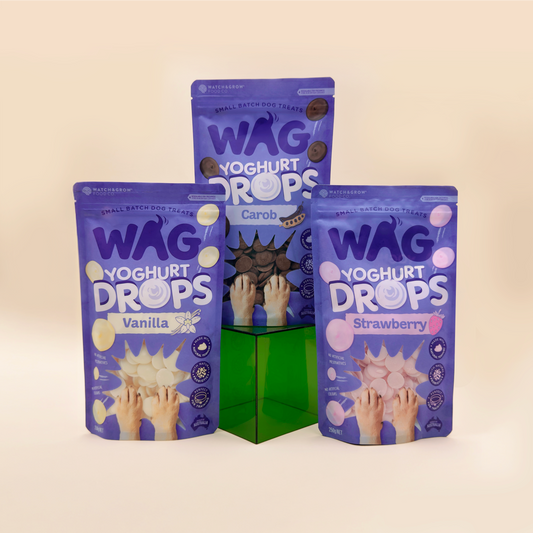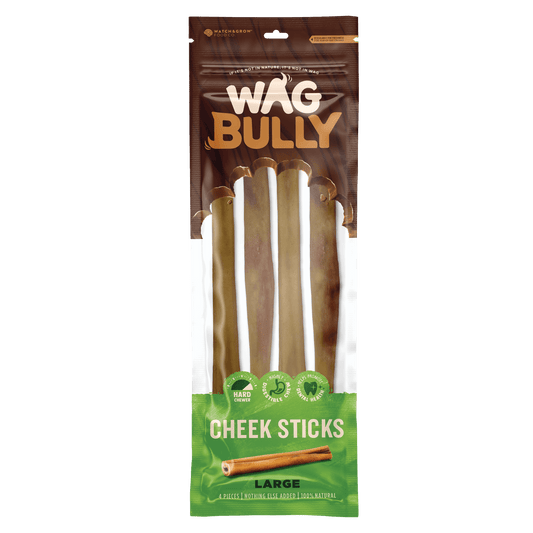How To Stop Dogs Chewing Their Beds - Our Ultimate Guide

Most dog owners will know that their furry friends love to chew, chew, chew. Sometimes, this friendly chewing doesn't stop at chew toys, and you soon find little dents and bite marks on everything: your shoes, your walls, and even your dog's bed. And it isn't just puppy teeth in young dogs that cause them to chew, there are plenty of common reasons for adult dogs to start chewing as well.
Now if you're dying to learn how to stop dogs chewing their beds in a positive and gentle way, you're in the right place. But while we can't teach you to get rid of the compulsive behaviour completely, we can offer strategies to help you redirect your dog's destructive chewing that helps to ease their anxiety or boredom at the same time. So delete those chew proof dog beds from your shopping carts and get to the bottom of your dog's chewing habit.
Why do dogs chew up their bed?

None of the people you know chew up their beds, so why do dogs do it? And if a person suddenly starts bed chewing, there are therapists and behavioural management strategies readily available to help. While you can't psychoanalyse your dog, you can often trace most behavioural problems back to an unmet need that shows up as canine stress.
If your dog has a bed chewing habit, it is normal and can be due to any common reasons such as separation anxiety or plain ol' boredom. So don't just sum it up as wildly destructive behaviour that only happens in "bad dogs". Because just like how we humans can have bad days that lead to poor decision-making, your pup's need to chew can come from a simple underlying cause - they just literally can't tell you what it is! So let's look at a couple of strategies you can try to help reduce or stop your dog's chewing habits in their tracks.
Canine stress and bed chewing
Speak to most vets or animal behaviourists and they will likely tell you that most destructive chewing habits stem from canine stress. This means that you could buy all the chew proof dog beds in the worlds and still face the bed chewing issue, but start seeing real improvements if you tackle the root cause of their destructive chewing. Try these tips to get started:
-
Invest in a smart camera:
If your dog only chews when no one is home with them, this could be due to separation anxiety or a fear of their environment without you there. Installing a smart home camera so you can keep track of your dog's behaviour throughout your day can help you identify and start managing the source of their stress. You can find more advanced cameras that have two-way audio, treat dispensers, and even calming pheromone sprays. -
Chew toy variation:
If your dog likes to "hunt" for their food, try hiding some healthy pig ears in a treat dispenser ball. Then change it up by treating them to some bully sticks for a lasting chew with dental benefits, or some coffee wood chews for a vegan alternative. Our dog treats have no grains or additives so you can be sure your fluffy friend is getting a high quality dog treat. -
Get outdoors:
If you have an overactive indoor pooch that is engaging in destructive chewing, help them meet their need for vigorous exercise by taking them outdoors for a 30-60 minute doggy workout. By keeping them physically active and their senses stimulated, they will likely rest on their beds at home instead of gnawing them to bits! Our yoghurt drops make a deliciously handy dog training treat when you're practicing outdoors and want to travel light. -
Deterrent sprays:
Some dog parents use anti-chew spray on their dogs' beds. This might be a temporary answer after spending to much time Googling "how to stop dogs chewing their beds". Many anti-chew sprays on the market claim to turn dogs off bed chewing by leaving a scent canines dislike on their beds. However, using a deterrent is still avoiding the root cause of the dogs' desire to chew. If you have a puppy who has just started gnawing on your shoes or furniture, try surprising them with a soft and chewy puppy pack that keeps them stimulated while being gentle on baby teeth.
Getting professional advice
If you've exhausted the internet of ways to stop your dog's compulsive bed chewing behaviour, it might be time to ask a professional for practical strategies on how to stop dogs chewing their beds. While you can try every possible strategy to calm and connect with your canine companion, sometimes you just need some expert advice.
Seeking professional help can be especially helpful if your dog was adopted and came from an abusive environment, or if they have gone through a traumatic experience. Animal behaviourists are the closest thing to a dog psychologist, and can be a great useful in identifying the source of your dog's stress and help you start managing it.
Get Your Dogs Chewing On Something Else!

If you have to go back to work and leave a bored dog who will chew aaall the things, then it's time to give them a healthier type of mental stimulation. While you can take your dog out for a run before of after you leave the house to get them active, investing in some healthy dog treats can be just the thing that keep those jaws treat-chomping and minds off bed-chewing!
Giving dogs rewarding treats that last can be a positive way to help your dog manage their compulsive behaviour and find alternative ways to relax while they munch. Not having to deal with an anxious pup with destructive chewing when you get home will also work wonders for your relationship with each other. So go on, treat your best pal to our 100% grain- and additive-free dog treats for a nutrient and dental care boost.
Shop the Recipe
Noopur Powale
Up Next
EXPLORE TREATS THAT ARE NEAR AND DEER TO YOUR DOGGO’S HEALTH!






